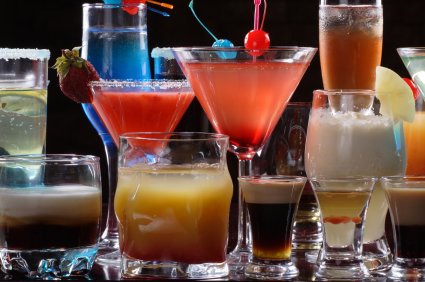
Dear Dr. Hurd,
If someone who’s young and immature stops drinking alcohol, and abstains for years, and later becomes mature and mentally healthy, can that person now drink normally?
Dr. Hurd’s reply:
There’s honestly no way to know, unless you try.
Alcoholics Anonymous and others have brainwashed most of us into believing that alcoholism is a disease. There’s no proof of this—i.e., no evidence of disease verifiable by MRI, blood test or other methods by which we normally prove the presence or absence of disease.
Because of this brainwashing, people who used to drink too much will be afraid to try years later. After all, if alcohol abuse is a disease, then you will drink too much no matter what your level of maturity or mental health, correct? You either have the disease or you don’t; and if you do, then avoid alcohol like the plague, forever. So the reasoning goes.
Alcohol is not a disease, because there’s simply no proof that it is. This doesn’t mean I’d encourage someone with a known alcohol problem, even years ago, to go back to drinking, just for the heck of it.
As with any behavior, potential risks and benefits must be weighed. For everyone, alcohol reduces inhibitions and impairs judgment. The more you drink, the truer this is. The more easily you become drunk, the greater the risk.
Some are impaired more quickly than others. Some find that they absolutely cannot have just one drink. Once they have one or two, all bets are off. They so love the effects of the one or two that their judgment to stop at a reasonable point goes out the window.
Other people have just one or two drinks, and gain personal benefit from doing so. Moderate intake of wine with dinner, or a pre-dinner cocktail, adds spice to life, kind of like pepper or salt to a dish. But they retain their judgment about when to cut it off.
I define an alcoholic as someone in the first group. Alcoholism, while not a disease, is not a choice in the normal sense of the term, because ‘choice’ is a concept that applies to being in a rational state of mind. Most people’s minds are altered, at least somewhat, after even a drink or two. An alcoholic’s judgment is so suspended after just one or two drinks that he feels compelled to drink many more than where he started. This doesn’t just happen occasionally, but all the time.
The question you seem to be asking is: Did I drink too much because I was immature and foolish? Or did I drink too much because I am, in fact, an alcoholic?
Like I said, you won’t know unless you try.
Why don’t you first weigh the benefits and risks of trying to drink again. Ask yourself: What do you stand to gain, and what do you potentially risk?
If you’re pressuring yourself to drink because you perceive others as wanting you to do so, I’d say stop right there. There’s no need to take a risk to please others. This is your life, not theirs. If your friends don’t enjoy your company unless you drink, then you ought to reevaluate your friendships, not whether or not to drink. If you have objectively defensible reasons to suggest your life would be better off if you drink within reasonable limits—e.g., one or two drinks maximum, not necessarily every day—then I won’t argue with your motives. Just be honest about your motives, and make sure they’re for your own sake.
If your motives are rationally self-interested, then do what scientific researchers do: Conduct a series of experiments. Plan times to drink when you know it will be safe. Make sure you don’t have to drive, and establish a definite limit on the amount you will drink in a given place and span of time. If you stick to that limit without difficulty, not just once but a number of times (let’s say 10 times), then you probably don’t have a problem. This doesn’t mean you might not develop one at a later date, but you’re probably safe if your judgment does not lapse after just one or two drinks, as always happens with alcoholics.
The outcome of your experiment will give you the best answer to your question possible. Is drinking a necessity? Absolutely not. You know you won’t develop problems if you stay away from alcohol. But if it’s really only a minimal amount of alcohol you crave, then you can judge for yourself what benefits it does or does not bring you, once you put it all to the test.
Be sure to “friend” Dr. Hurd on Facebook. Search under “Michael Hurd” (Rehoboth Beach DE). Get up-to-the-minute postings, recommended articles and links, and engage in back-and-forth discussion with Dr. Hurd on topics of interest.
